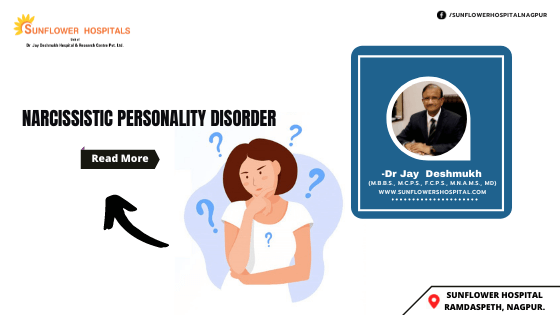What is a Narcissistic personality disorder?
This is one of several types of personality disorders. This is a mental condition where people have an inflated sense of their own importance. They have a tremendous need for excessive admiration and attention. They have troubled relationships and a lack of empathy for others. Behind the mask of extreme confidence lies a fragile self-esteem that is vulnerable to the slightest criticism.
What are the main symptoms of NPD?
Most of them have an exaggerated sense of self-importance. They require constant admiration and attention. They expect to be recognized as superior, even without achievements that warrant it. Most of them exaggerate their achievements and talent. They are always preoccupied with fantasies about success, power, brilliance, or beauty. They feel that they are superior and always wish to be associated with equally special people. Furthermore, they monopolize conversations and look down upon people they perceive as inferior. They take advantage of others to get what they want. They also have an inability or unwillingness to recognize the needs and feelings of others. Furthermore, they are envious of others and believe that others envy them. They insist on having the best of everything.
What about their behaviour?
They behave in a haughty or arrogant manner, coming across as conceited, boastful and pretentious.
Can they handle criticism?
They become impatient or angry if they do not receive special treatment. Have significant interpersonal problems and easily feel slighted. They always react with rage or contempt and try to belittle the other person to make themselves look superior.
How to prevent narcissistic personality disorder?
The cause of this personality disorder is not known. Hence, there is no way to prevent the same. Get treatment for childhood mental issues, participate in family therapy to learn healthy ways to cope with conflicts or emotional distress.
How to diagnose NPD?
This is typically based on symptoms, physical examination to make sure that you are not suffering ng from a physical health issue, and a thorough psychological evaluation is necessary.
It is often said that the World wars and the present Ukraine crisis are possibly due to various factors, including Narcissistic Personality disorder, affecting their leaders.
Regulating behaviour emotions and behaviour is a big issue for them. They always have major problems dealing with stress and adapting to change. They are moody and depressed because they fall short of expectations. Furthermore, they have a secret feeling of insecurity, shame, and humiliation.
What are the main causes of NPD?
Mismatch with parent-child relationships due to excessive adoration, genetic that causes inheritance of characteristics and disconnect between the brain, behaviour, and thinking.
What are the complications of Narcissistic Personality Disorder?
They have relationships difficulties, issues at work or at school, depression and anxiety, physical health issues, suicidal thoughts or behaviour or drug and alcohol misuse.
What is the treatment of NPD?
Treatment is basically talked therapy or psychotherapy. There are no specific medications. Patients typically show reluctance to begin treatment and resistance to engaging in treatment. Mood stabilizers, Aripiprazole for impulsive anger and aggressiveness, may be tried in consultation with a Psychiatrist.
Is NPD a personality flaw?
No, it is a mental health condition. When you have NPD, you do or say things that spoil relationships. This is not on purpose. It is driven by a deep sense of insecurity, the feeling that you are not good enough, and the need for people to think that you are worthy. With treatment, you can learn healthy ways to boost your self-esteem and get along better with others.

